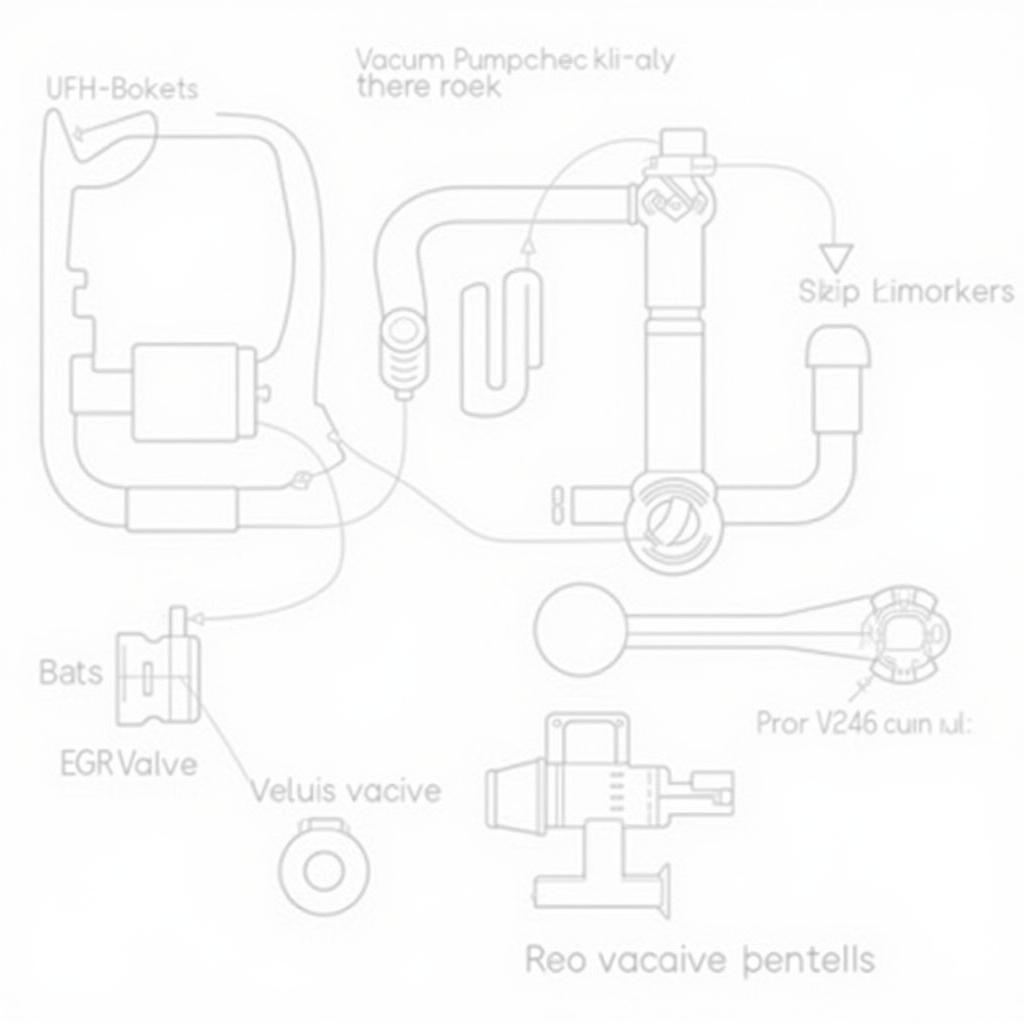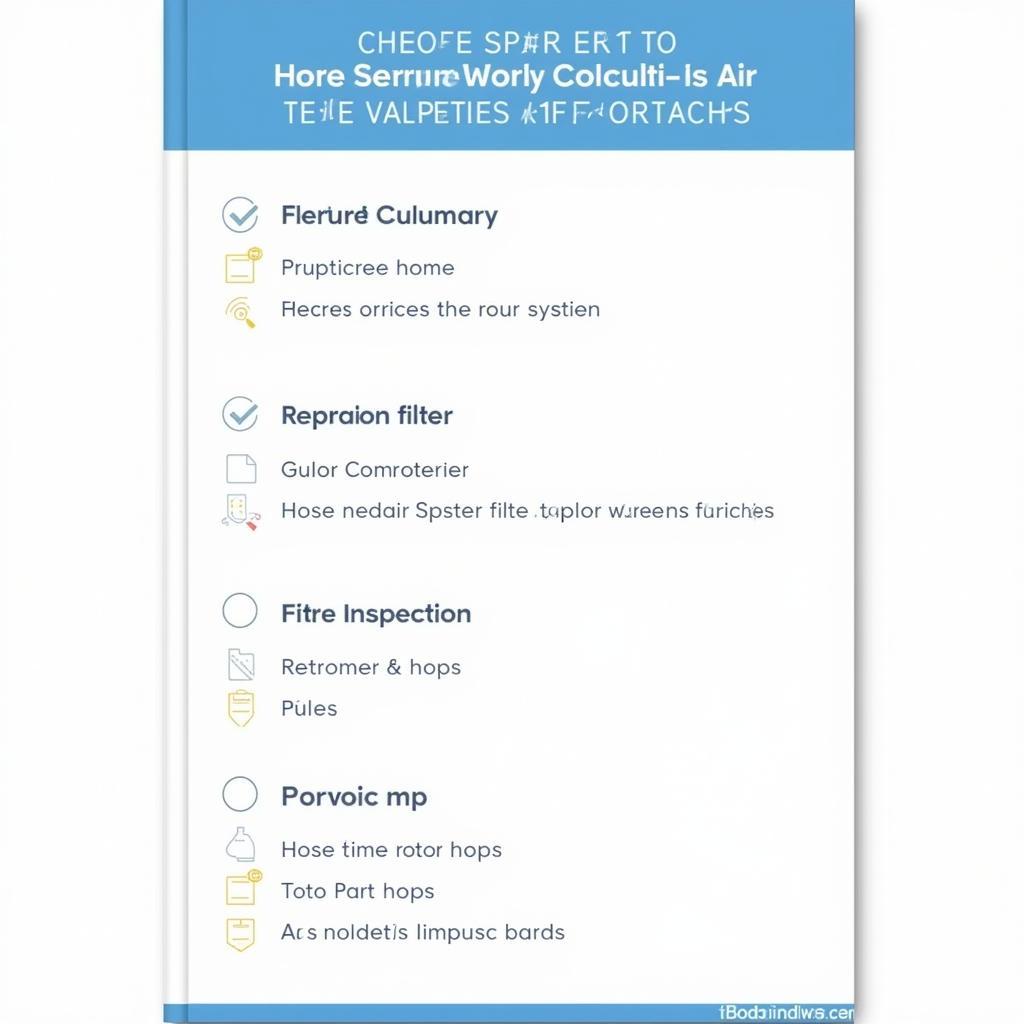Maintaining your car’s air conditioning and vacuum systems is crucial for comfort, safety, and optimal performance. Auto air and vacuum services address these needs, ensuring a pleasant driving experience and the proper functioning of various vehicle components.
Understanding Auto Air Conditioning Services
Your car’s AC system is more than just about keeping cool in the summer. It also plays a vital role in demystifying windows and maintaining a comfortable cabin environment. Regular auto air conditioning services can prevent costly repairs and ensure optimal performance.
Key Components of an AC System
Understanding the basic components of your car’s AC system can help you better grasp the importance of regular maintenance. These include the compressor, condenser, evaporator, and expansion valve. Each component plays a critical role in the refrigeration cycle.
- Compressor: Compresses the refrigerant gas, raising its temperature and pressure.
- Condenser: Releases the heat absorbed by the refrigerant, converting it back into a liquid.
- Evaporator: Absorbs heat from the cabin air, cooling it down and blowing it into the vehicle.
- Expansion Valve: Regulates the flow of refrigerant into the evaporator.
Common AC Issues and Solutions
Several issues can arise with your car’s AC, from a lack of cold air to strange noises. Common problems include leaks, faulty compressors, clogged filters, and electrical issues. A qualified technician can diagnose and address these issues effectively.
- Leaks: Refrigerant leaks can lead to reduced cooling efficiency.
- Faulty Compressor: A failing compressor can result in no cold air or unusual noises.
- Clogged Filters: Restricted airflow due to clogged cabin air filters can reduce cooling performance.
- Electrical Issues: Problems with wiring, fuses, or relays can disrupt the AC system’s operation.
Exploring Auto Vacuum Services
Beyond the AC system, vacuum systems play a crucial role in various vehicle functions, from brake boosters to emission control systems. Understanding these systems and their maintenance requirements is essential for optimal vehicle performance and safety.
The Importance of Vacuum Systems
Vacuum systems utilize negative pressure to assist various components. For instance, the brake booster utilizes vacuum pressure to enhance braking power. Similarly, vacuum systems are crucial for proper engine function and emission control.
 Automotive Vacuum System Diagram
Automotive Vacuum System Diagram
Common Vacuum System Issues
Like any other automotive system, vacuum systems can experience problems. Leaks, faulty hoses, and malfunctioning vacuum pumps are common issues that can affect performance and safety.
- Leaks: Vacuum leaks can cause a loss of pressure, impacting brake performance and other vacuum-dependent systems.
- Faulty Hoses: Damaged or deteriorated vacuum hoses can contribute to leaks and reduced system efficiency.
- Malfunctioning Vacuum Pump: A failing vacuum pump can result in insufficient vacuum pressure, leading to various problems.
Diagnosing Vacuum Leaks
Diagnosing vacuum leaks can be challenging. Using a vacuum gauge or a smoke test are common methods employed by technicians to pinpoint the source of a leak.
Maintaining Your Auto Air and Vacuum Systems
Regular maintenance is crucial for the longevity and performance of your auto air and vacuum systems. Routine checks and timely repairs can prevent costly breakdowns and ensure optimal performance.
 Auto Air and Vacuum Service Checklist
Auto Air and Vacuum Service Checklist
Conclusion
Auto air and vacuum services are essential for maintaining your vehicle’s comfort, safety, and performance. Regular maintenance and timely repairs can prevent costly breakdowns and ensure a pleasant driving experience. By understanding the key components and common issues associated with these systems, you can make informed decisions about their upkeep.
FAQs
- How often should I have my car’s AC serviced?
- What are the signs of a failing vacuum pump?
- How can I prevent vacuum leaks?
- What is the cost of a typical AC recharge?
- What are the benefits of regular AC maintenance?
- How can I tell if my cabin air filter needs replacing?
- What should I do if my brakes feel spongy?
If you need assistance, please contact us via WhatsApp: +1(641)206-8880, Email: [email protected] or visit us at 321 Birch Drive, Seattle, WA 98101, USA. We have a 24/7 customer support team.
